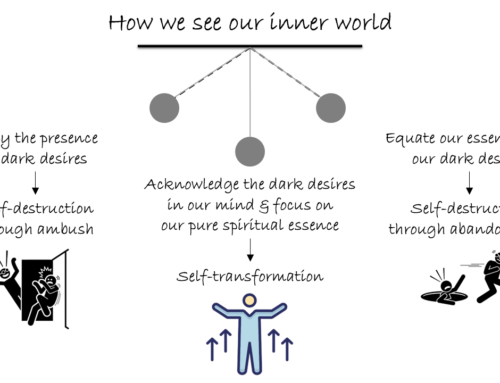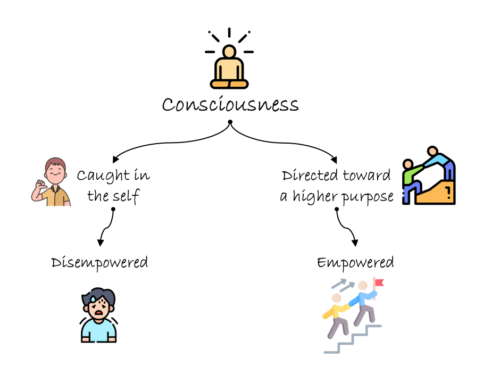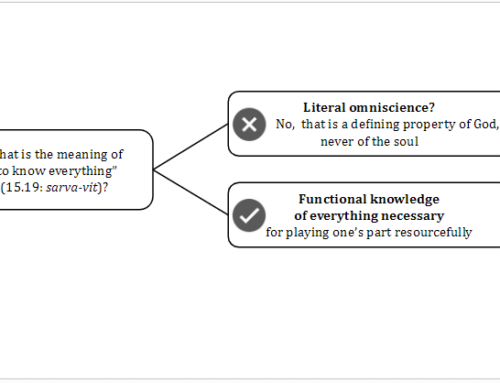1. Individual Perspective
I have witnessed the celebration of Christmas in multiple settings—at my convent school, during my speaking tours in North America’s Bible Belt, and through the media, both mainstream and social.
The festive mood surrounding Christmas is genuine and carries a long history. While modern celebrations often focus on family, fun, and nostalgic memories (as popularized by Hallmark movies), it is concerning how much attention is given to Santa Claus over Jesus Christ. Childhood memories are important, but these shouldn’t overshadow the core spiritual significance of the celebration.
This observation isn’t limited to Christmas. Festivals in many traditions, including my own, often prioritize cultural aspects over their deeper spiritual meanings. Yet, the nativity scenes, reenactments of Christ’s birth, and hymns like Jingle Bells still attempt to preserve the original intent.
Although Christianity is not my chosen path toward God, I sincerely wish that those who follow it grow closer to the Divine through their faith. Celebrations, whether Christian or otherwise, should inspire a spirit of connection with God rather than descending into materialistic displays.
—
2. National Perspective
In India, Christianity’s impact has been both constructive and corrosive:
Constructive Contributions: The establishment of educational, medical, and humanitarian infrastructure has benefited many.
Corrosive Influence: At times, these contributions have been accompanied by efforts to subtly or overtly damage indigenous faiths and impose exclusivist worldviews on India’s otherwise inclusive culture.
The Bhagavad-Gita explains that all things manifest in the three modes of material nature—goodness (sattva), passion (rajas), and ignorance (tamas). Christianity, like all religions, has expressions in each mode. For instance:
In tamasik expressions, Jesus’ teachings of love and sacrifice have sometimes been twisted into justifications for intolerance.
Conversely, in sattvik expressions, Christianity has fostered compassion, education, and social welfare.
An inclusive spirit in approaching exclusive ideologies is challenging. For example, the biblical teaching of “render unto Caesar what is Caesar’s” emphasizes balancing national loyalty with spiritual allegiance. This balance is essential, particularly in a culturally diverse nation like India.
India can benefit from a spirit of integration and inclusivity, centered on the teachings of Jesus, while guarding against exploitative tendencies often hidden in missionary activities.
—
3. Socio-Cultural Perspective
Aggressive leftist efforts to remove religion from the public sphere target Christianity in the West, while paradoxically tolerating or even aligning with radical expressions of political Islam. In India, similar leftist movements attempt to minimize the presence of traditional spirituality.
The shift from “Merry Christmas” to generic greetings like “Happy Holidays” may seem innocent, but it reflects a deeper effort to uproot humanity from its cultural and spiritual anchors. Even prominent atheists like Richard Dawkins have acknowledged the value of Christianity’s cultural legacy in Europe, warning against replacing it with more intolerant ideologies.
In America, often seen as the embodiment of materialism, Christianity remains a powerful cultural and moral force. Despite leftist pushback, recent political movements in the U.S. have shown strong support for maintaining Christian values. Similarly, in India, the preservation of cultural expressions within Sanatana Dharma is vital, just as Christianity’s cultural and spiritual contributions must be respected.
Let us hope that Christmas continues to remind us of humanity’s collective spiritual search through its artistic, musical, and poetic achievements.
—
4. Global Perspective
On an international level, Christmas offers an opportunity to turn humanity’s focus toward the spirit. In an increasingly fragmented and polarized world, this is vital for survival.
Much of what defines the West—its science, philosophy, and cultural ethos—can be traced back to the religious inspiration of Jesus of Nazareth and the intellectual legacy of Greek thinkers. The interaction between Christianity and the Enlightenment has fostered a balanced and holistic approach to life in many parts of the world.
Even within ISKCON, support from Christian scholars has played a crucial role in countering misrepresentations by anti-cult activists. Their defense of ISKCON as a tradition with an ancient, venerable history in India reflects the introspection and self-awareness often seen in the best representatives of Christianity.
In my interfaith interactions in North America, I have encountered Christian thinkers who embody this breadth of spirit. If such a spirit were more evident among Christians in India, it could inspire greater harmony between faiths.
The presence of visible and vocal Hindus, such as Tulsi Gabbard, Vivek Ramaswamy, and Kash Patel, in the incoming U.S. government reflects a spirit of merit-based inclusion that transcends religious boundaries. If we all embraced this perspective—seeing the intrinsic worth of every human being, as taught by the Bible (“man is made in the image of God”) and the Bhagavad-Gita (15.7: “Every living being is an eternal part of God”)—the world would be a far better place.
—
A Personal Dedication Beyond the Public Celebration
If the public celebration of Christmas can inspire a personal dedication to spiritual growth, it will fulfill its true purpose. Rather than using faith to assert superiority, let us focus on improving ourselves and fostering harmony.
The Christmas spirit of goodwill and good cheer can and should endure far beyond the holiday season, bringing much-needed harmony to a divided world.




Leave A Comment